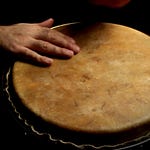Sensitive periods offer profound insights into a child's development and guide our use of Montessori practices. Understanding these periods can greatly enhance parenting. They occur exclusively in the first plane of development, from birth to around age 6.
During a sensitive period, a baby develops a strong attraction or keen interest in specific aspects of their environment. These periods act like a magnifying glass, focusing the child's attention on particular elements that resonate with the concept of the absorbent mind.
Key rhythms of sensitive periods in babies include milestones such as rolling over, crawling, and walking. Additionally, there are sensitive periods for language development, introduction to solid foods, and exploration of small objects. Each phase facilitates the acquisition of new skills and fosters greater independence in the baby.
As described in "Montessori From the Start," sensitive periods are waves of intense absorption where a child focuses intensely on particular developments, such as order, language, and learning to walk. These periods vary in duration from months to years.
“For example, there is a period of intense absorption with order, another for language, and another for learning to walk. During each of these time frames, varying in duration from months to years, the child is so focused on the particular development that he will ignore other phenomena previously of great interest to him.” (Lillard & Jessen, 2003, p. 6)
Sensitive periods in infancy typically include:
- Order
- Movement
- Language
- Enjoying images and small objects
During these periods, there is a noticeable surge in learning and development.
For toddlers, sensitive periods commonly involve:
- Language
- Order
- Small objects
- Coordination of movement
- Sensorial exploration
- Grace and courtesy
A sensitive period manifests when a child shows a heightened interest in activities like working with water, exploring sensory materials, refining motor skills, establishing routines, and developing manners and courtesies. This phase highlights a child's effortless acquisition of specific skills.
To support children during their sensitive periods, we can provide appropriate materials and activities tailored to their interests while closely observing their development.
Questions to consider:
- What signs of a sensitive period is your child exhibiting?
- What activities are they most interested in?
- What is your child absorbing during their absorbent mind stage (birth to 3 years) without conscious effort?
Download this comprehensive resource on Sensitive Periods in infants and toddlers, detailing how each of these critical phases enables babies and toddlers to acquire new skills and foster greater independence.
In conclusion, we can nurture our babies and toddlers right from the start by using rich language, establishing meaningful routines, communicating effectively, and sharing culturally enriching experiences that resonate deeply with their developing souls.
Join me next time as we explore the power of observation to better understand children's needs, tendencies, and sensitive periods.
For those in the DC Metro Area, explore Heketi House, or discover on-demand courses and 1:1 virtual coaching opportunities with Heketi Montessori.
I am continuing to gather email addresses to support the Heketi House Campaign, aiming to introduce Montessori Parent and Me classes and other services and events in the DC Metro Area for families with babies to three! If you haven't already, please click the link below to sign up and receive exclusive updates on the Heketi House Journey!
References
Lillard, P. P., & Jessen, L. L. (2003). Montessori from the Start: The Child at Home, from Birth to Age Three. Knopf Doubleday Publishing Group.









Share this post